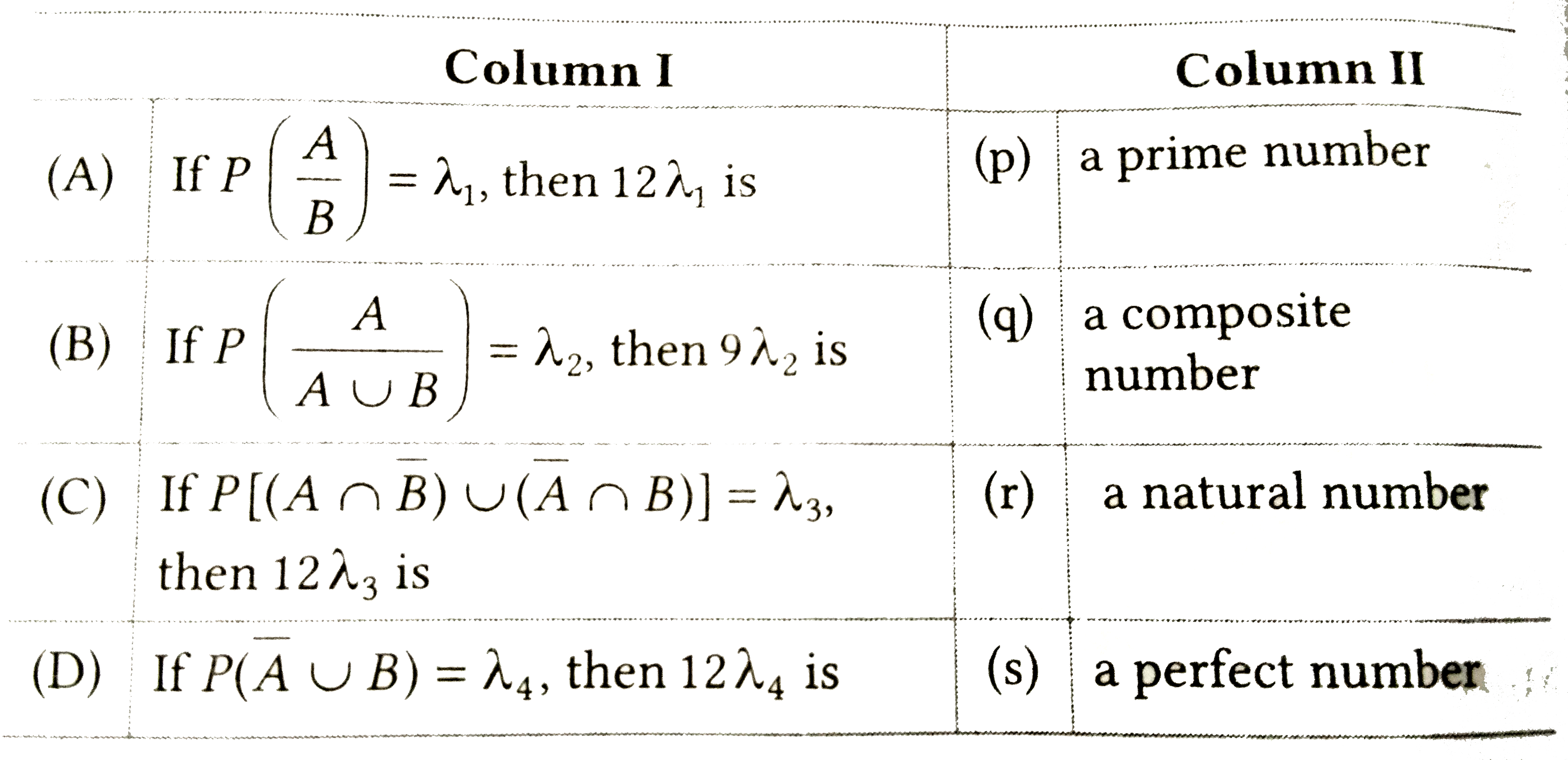If A and B are two independent events with P(A) =13andP(B)=14 , then P(B/A) is equal to
14
13
34
1
The correct Answer is:C
To solve the problem, we need to find P(B|A), which is the probability of event B occurring given that event A has occurred. Since A and B are independent events, we can use the properties of independent events to find this probability.
1. Understand the Given Information:
- We are given P(A)=13 and P(B)=14.
- Events A and B are independent.
2. Use the Formula for Conditional Probability:
- The formula for conditional probability is:
P(B|A)=P(A∩B)P(A)
3. Find P(A∩B):
- Since A and B are independent, we can find P(A∩B) using the formula:
P(A∩B)=P(A)⋅P(B)
- Substitute the values:
P(A∩B)=(13)⋅(14)=112
4. Substitute Back into the Conditional Probability Formula:
- Now substitute P(A∩B) back into the conditional probability formula:
P(B|A)=P(A∩B)P(A)=11213
5. Simplify the Expression:
- To simplify 11213, we multiply by the reciprocal:
P(B|A)=112⋅31=312=14
6. Conclusion:
- Therefore, the probability P(B|A) is:
P(B|A)=14
Final Answer:
P(B|A)=14
- We are given P(A)=13 and P(B)=14.
- Events A and B are independent.
- The formula for conditional probability is:
P(B|A)=P(A∩B)P(A)
- Since A and B are independent, we can find P(A∩B) using the formula:
P(A∩B)=P(A)⋅P(B)
- Substitute the values:
P(A∩B)=(13)⋅(14)=112
- Now substitute P(A∩B) back into the conditional probability formula:
P(B|A)=P(A∩B)P(A)=11213
- To simplify 11213, we multiply by the reciprocal:
P(B|A)=112⋅31=312=14
- Therefore, the probability P(B|A) is:
P(B|A)=14
P(B|A)=14
Topper's Solved these Questions
Similar Questions
Knowledge Check
If A and B are two independent events with P(A)=35andP(B)=49 then P(A∩B) is equal to:
A415B845C13D29If A and B be independent events with P(A)=14and(P(A∪B)=2P(B)−P(A) , then P(B) is equal to
A25B15C35DNone of theseIf A and B are two independent events such that P(A∪B)=0.8andP(A)=0.3 then P(B) is equal to: a) 2/3 b) 5/7 c) 1/8 d) 3/8
A23B57C18D38
If A and B are independent events with P(A)=37 and P(B)=25 then find P(A'∩B')
View SolutionIf A and B are two independent events, then P( A and B)=P(A)⋅P(B)
View SolutionIf AandB are two independent events such that P(A)=12 and P(B)=15, then a.P(A∪B)=35 b. P(A/B)=14 c. P(A/A∪B)=56 d. P(A∩B/¯¯¯A∪¯¯¯B)=0
View SolutionIf A and B' are independent events, then P(A'∪B)=1−P(A)P(B').
View SolutionIf AandB are two independent events such that P(B)=27,,P(A∪B)=0.8 then P(A)=
View Solution

